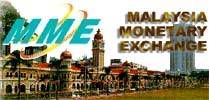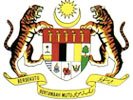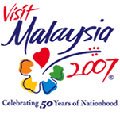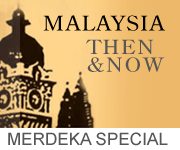Choose one!.
Malaysian Money The currency in Malaysia is the Ringgit which consists of 100 Ringgit to the Malaysian Dollar. Coins include the 1 Ringgit, 5 Ringgit, 10 Ringgit, 20 Ringgit, 50 Ringgit pieces. Currently (2001) the Malaysian Ringgit is RM 3.80 = USD 1.00.
Malaysia Money - 10 RinggitExchange The country's regulation requires all travelers to declare the amount of local or foreign currency (travellers cheques and cash) they bring into or take out of the country.
The Travelers Declaration Form (TDF) for this purpose can be obtained from any Malaysian Embassies/High Commission, Malaysia Tourism Promotion Board Office and all entry/exit points in Malaysia.
Money can be exchanged at commercial banks, at currency exchange services of these banks and at authorised moneychangers. Rates may vary slightly from bank to bank.
Many hotels double as authorised exchange outlets though their rates are usually not as good as those of banks and independent authorised moneychangers. A small number of authorised moneychangers offer better rates than the banks.
Money Changing And Remittance ServicesMoney Changing And Remittance Services (Bureau De Change) The offices called kiosks are named ‘Bureau De Change’ as European tourists are more familiar with this name than ‘money changers’. Along with money changing, remittance facilities are also provided. This facility was initially developed to accommodate the large population of foreign workers who remit funds overseas. If you cannot make it during the banking hours, the Bureau De Change located mainly at shopping areas would be another alternative for you to do your remittances.top of page
Banks are open from Monday through Friday from 10am to 3pm, and Saturday 9:30am to 11:30am. Most bank staff speak English so communication in most branches shouldn’t be a problem. Authorised moneychangers in hotels often stay open 24 hours a day.
Banks are open as above except on holidays, which fall as follows: Weekly holidays vary from region to region. In Selangor, Melaka, Penang, Perak, Pahang and Negri Sembilan, there is a half-day holiday on Saturday and a full-day holiday on Sunday. In the states of Johor, Kedah, Perlis, Terengganu and Kelantan a traditional half-day holiday is observed on Thursday and full-day holiday on Friday; Saturday and Sunday are treated as weekdays.
January 1 - New Year's Day (except Johor, Kelantan, Terengganu, Kedah and Perlis) April 13 - Good Friday May 1 - Labor Day May 9 - Vesak Day (except for Federal Territory of Labuan) June 6 - Birthday of Yang di-Pertuan Agong (King) July 23 - Maal Hijrah August 31 - National Day December 25 - Christmas Day.
In addition, many moveable feasts are observed, depending on the Christian, Muslim, Buddhist or Hindu calendar. Chinese New Year (2 days; except Kelantan and Terengganu - 1 day) Hari Raya Puasa (2 days) Hari Raya Haji (1 day; 2 days in Kedah, Kelantan, Pahang, Perlis) Prophet Mohammed's Birthday Awal Ramadan. Note: If a holiday falls on a weekend or Friday, the following day becomes a holiday.
Exchange Control The exchange control policies of Malaysia are applied uniformly to transactions with all countries except Israel and the Federal Republic of Yugoslavia (Serbia and Montenegro) for which special restrictions apply. Non-resident travelers entering Malaysia are permitted to import up to a maximum amount of RM 1000 only and any amount of foreign currencies. Conversely, they are permitted to export up to a maximum amount of RM 1000 only and foreign currencies not more then what was originally brought into the country.
Credit cards are widely accepted, and many ATM machines accept Visa and MasterCard if your card has a Pin number associated with it. Major credit cards are accepted at upmarket hotels, shops and restaurants. Automated teller machines allow travellers to withdraw money from their overseas savings accounts or credit cards.
Foreign Currency Accounts of Non-Residents Commercial banks and merchant banks are freely allowed to open foreign currency accounts for non-residents. There are no restrictions on the inflow and outflow of funds through the foreign currency accounts of non-residents.
Automated Teller Machines (ATM) and Deposit Machines While most users of ATMs use the withdrawal, transfer and inquiry functions, one can also deposit cheques and cash. Cash deposit machines allow you to deposit cash 24 hours a day. The machines are designed to accept Ringgit notes in a wide range of denominations, including 2, 5, 10, 50 and 100 Ringgit. Soiled notes and counterfeit notes will be rejected. A receipt is given acknowledging receipt of the cash.
Foreign Currency Changing Machine Located mainly at airports, these machines are convenient when changing foreign currency especially US Dollars.
Safety deposit boxes are available at most banks but may be in short supply and some banks may insist you open an account with them before they will issue you with a safety deposit box. Many hotels and resorts offer this service so you may find you won’t need the services from the bank. Safety deposit boxes cam be rented for long or short periods of time
Labels: Money







